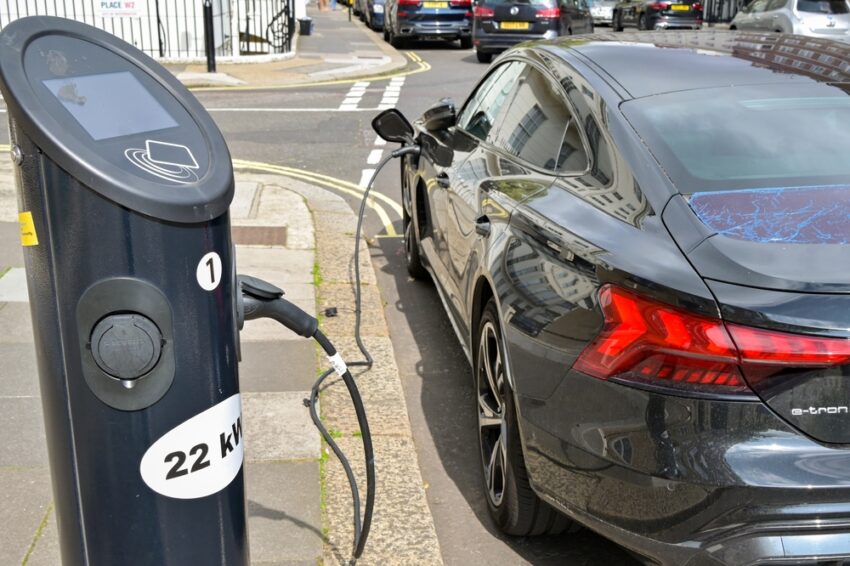AA calls for tax cut as kerbside charging costs drop 12%
The cost of kerbside charging dropped 12% in June, according to new data from the AA.
The motoring organisation’s monthly Recharge Report showed that the average peak rate on a slow (up to 8kW) on-street device fell from 67p/kWh in May to 59/pkWh last month. It also found a 3p drop in off-peak rates for slow devices, which fell to an average of 42p/kWh.
The changes mean that a driver who charges at off-peak times from kerbside supply is now saving 3.3p per mile compared to equivalent petrol costs. However, those with access to an off-street private charger and a flat-rate domestic tariff of 24p/kWh are saving at least 7.4p a mile compared with an equivalent petrol car.
The figures showed that the average cost-per-mile of a 1.2-litre Vauxhall Corsa was 12.85p thanks to a 3.4p per litre reduction in fuel costs in June. A Corsa Electric, in contrast, costs just 5.42p per mile on a domestic flat rate of 24p/kWh and would be even cheaper on a dynamic EV tariff. For a driver charging at a slow device off-peak the cost was 9.49p/mile and even at off-peak ultra-rapid rates, the EV was cheaper to run, at 11.53p/mile.
However the AA’s data also showed that, on average, exclusively using fast and rapid chargers (8-149kWh) would make the EV more expensive, at between 16.95p and 17.85p/mile.
The AA’s head of road policy, Jack Cousens, said the figures showed the need for tax parity between public and domestic charging costs and urged the new Labour government to embrace ‘easy wins’ in helping drive the shift to EVs.
He commented: “The fall in peak and off-peak slow charging prices is excellent news for those EV drivers without any off-street parking. Considering 40% of households don’t have their own driveway or parking space, keeping residential charging prices low is vital to help prospective EV owners make the switch.
“During the election campaign, Labour often spoke about their intention to decarbonise the transport sector, especially cars. There is much for the new government to do on the road to decarbonisation, but they can tap into some early wins such as cutting VAT on public charging to reduce prices further, while providing more localised support to build chargers in areas where the infrastructure gap is widening.”
Labour has pledged to set binding targets for new charger roll-out and to simplify planning procedures to aid operators. However, it is yet to announce any details of either plan.






